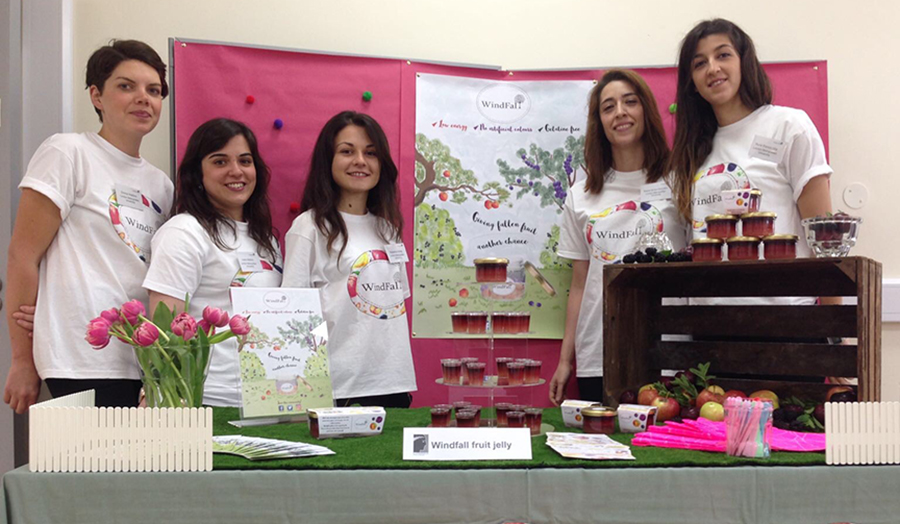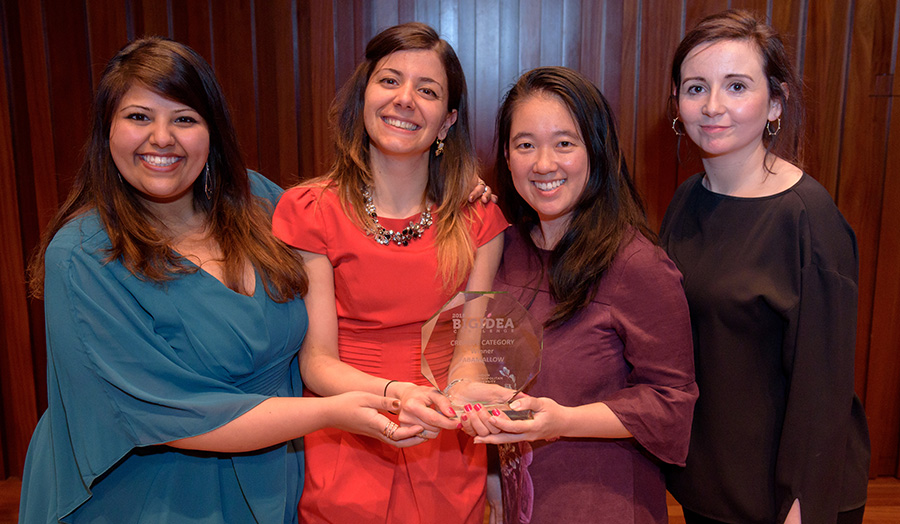Apply for this course
Please select when you would like to start:
Use the apply button to begin your application.
If you require a Student visa and wish to study a postgraduate course on a part-time basis, please read our how to apply information for international students to ensure you have all the details you need about the application process.
Why study this course?
This degree focuses on food analysis and food microbiology as well as product development and quality control. You'll be taught by members of staff who are active within the Institute of Food Science and Technology, and are regularly involved in the food industry as expert consultants. You'll also learn from our food business development colleagues to gain experience in the industry through work placements.
Learn from industry professionals
You'll be taught by members of staff who are active within the Institute of Food Science and Technology, and are regularly involved in the food industry as expert consultants
Learn about every aspect of food science
There is a huge range of modules offered on this course with analytical facilities available for study and research, and opportunities to be involved in food analysis, food product development and food manufacturing projects
Develop your skills across a wide range of food science topics
The course team has particular expertise in food analysis, food microbiology and including food safety, spoilage and fermentations, product development and quality control, as well as an excellent understanding of food sustainability, food policy and nutrition
Course modules
The modules listed below are for the academic year 2024/25 and represent the course modules at this time. Modules and module details (including, but not limited to, location and time) are subject to change over time.
Year modules
Advanced Research Skills
This module currently runs:spring semester - Tuesday afternoon
(core, 20 credits)
This module develops the student skills in conducting research in food & nutritional sciences with experience in critical evaluation of literature, study design, data collection, data analysis and interpretation.
The content of this module will focus upon the key tools available for research relevant to human nutrition and food science giving the students an appreciation of the key skills required to participate in research. It will consolidate prior broad knowledge of statistical techniques to develop a deeper understanding of statistics and allow the student to enhance their critical and reflective approaches to research. This will be addressed in a wider context of ethics and professionalism.
Food Chemistry and Analysis
This module currently runs:autumn semester - Tuesday afternoon
(core, 20 credits)
The module gives students the opportunity to revisit basic analytical methods used in food analysis and then to experience a range of more advanced methods.
This module aims to give students an overview of analytical methods used for foods, in their chemical and physical determination, and provides an understanding and knowledge of the main food chemical components and nutrients.
You will gain laboratory experience in using some of the more advanced methodologies, for example in chromatographic and spectrometric techniques, and develop an understanding of their scope and limitations. It will also allow students to analyse a food for macronutrients and understand the limitations of the procedures involved.
The module is assessed through two progress tests and a coursework report of an analytical investigation.
Read full detailsFood Microbiology and Safety
This module currently runs:spring semester - Wednesday morning
(core, 20 credits)
This module is designed to integrate theory and practice of food microbiology and microbial risk assessment. It covers the mechanisms and factors affecting the microbial growth, microbial risk analysis with respect to food safety, predictive microbiology, foodborne diseases and emerging pathogens, microbiology from farm to fork, control of spoilage microorganisms and pathogens, and introduction to molecular microbiology. This module reflects current thinking in this subject area and places emphasis on the behaviour of pathogenic microorganisms in foods, pathogenicity and control.
Aims of the module
By completing this module you will develop:
• particular theoretical knowledge on the role of microorganisms in food spoilage, food borne diseases, food production and food preservation
• practical skills on characterisation of microorganisms
• theoretical and practical skills in molecular identification microorganisms
• a deep understanding of microbial risk analysis of food
• the ability to apply advanced theoretical knowledge to complex real world problems.
Food Product Development and Processing
This module currently runs:autumn semester - Wednesday
(core, 20 credits)
This module is designed to cover two important and relevant elements of Food Science program together.
The first element (food product development) integrate theory and practice through practical food product development, research and sensory evaluation. Techniques used in industry for commercial product development and creation of initial product concept to product launch involving aspects of packaging, labelling, pricing and marketing and issues of starting a new food business will be explored. Food components and their interaction in food products will be reviewed using case studies of product modifications and reformulations to meet changing health requirements, lifestyle preferences and consumer demand. The principles and techniques for sensory measurement and analysis will be discussed and after practical training some of the techniques will be used and the results are analysed.
In the second element of the module (food processing), students will study the basic principles of food processing, theoretical aspects of processes, new technologies in food processing, fermented foods, functional foods, and reduction of waste with particular reference to organic foods. Attendance for all practicals is essential.
Aims of the module
By completing this module you will develop:
• Insight to gap and market/competitor analysis
• Advanced understanding of product modifications and reformulations
• Skills to create a food product from initial consumer needs analysis and concept to the finished product
• Essential abilities to plan sensory trials
• Advanced knowledge of traditional and novel food processing techniques
• Critical understanding of functional foods
Food Safety and Quality Management
This module currently runs:autumn semester - Tuesday morning
(core, 20 credits)
The module examines in detail the key aspects of the management of food safety through prerequisite programmes and HACCP as well as the role of supplier assurance and ingredient specifications in managing the quality of processed foods.
The concept of risk analysis and its three main components (risk assessment, risk management and risk communication) will be introduced. You will study the application of Hazard Analysis Critical Control Points (HACCP) and the main causes of system failure. You will examine industrial case studies and identify best practice before writing a comprehensive HACCP plan. You will understand the importance of government inspection and sampling programmes as well as the growing reliance on third party auditing to agreed industrial standards (IFS, BRC, ISO and SALSA) in the safe and consistent production of food that complies with EU and global legislation. The use of consumers’ purchasing power to drive up safety and quality standards will also be explored.
The aims of the module:
1. To study the application of Hazard Analysis Critical Control Points (HACCP)
2. To study the main causes of HACCP system failure.
3. To examine industrial case studies and identify best practice before writing a comprehensive HACCP plan.
4. To understand the importance of government inspection and sampling programmes as well as the growing reliance on third party auditing to agreed industrial standards (IFS, BRC, ISO and SALSA) in the safe and consistent production of food that complies with EU and global legislation.
To explore use of consumers’ purchasing power to drive up safety and quality standards.
Research Dissertation
This module currently runs:spring semester
autumn semester
summer studies
(core, 60 credits)
The aims of this module are to allow the learner to undertake a detailed piece of original research either by the empirical collection of data or an original secondary analysis of existing data.
To build upon experience at undergraduate level and understanding of the research methodologies relevant to human nutrition and/or food science and/or dietetics and to demonstrate application of knowledge and skills developed through their prior study in the respective degrees. This module also aims to provide an opportunity for critical reflection of the research topic and self-reflection of learning, studying and research skills and knowledge.
This module is designed for learners to undertake a substantial piece of research in the nutrition and/or food science and/or dietetics. The research project is intended to build upon the taught modules of the relevant award. The dissertation is designed to demonstrate synthesis of knowledge and skills developed throughout the award. As the largest piece of assessed work undertaken on the award, the dissertation will carry great significance with the assessment board as it will be seen as the clearest expression of the learners’ ability at postgraduate level.
Assessment: Will comprise of project proposal (750 words), Dissertation (8000 words) and a viva voce of 20 minutes where learners will defend their research submission.
To pass the module an aggregate mark of at least 50% must be obtained.
Food Science Industrial Placement
This module currently runs:summer studies
autumn semester
spring semester
(option, 20 credits)
This module gives students the opportunity to undertake an assessed work placement in the food industry. The assessments are designed to encourage reflection of their experience and demonstrate learning at level 7.
Aims of the module
By completing this module you will develop:
• a deep understanding of operation of the particular business where the placement was undertaken
• an analysis of the placement organisational structure and its strengths and weaknesses
• the knowledge and experience of approaches to the management of the specific business
Nutrition and Food Policy
This module currently runs:spring semester - Tuesday morning
(option, 20 credits)
This module aims to develop a critical understanding of the rationale for and the formulation, implementation and limitations of food, nutrition and obesity policies, in local, national and international contexts. The content of this module will draw upon prior knowledge and practical experience in basic food and nutrition science.
This module will focus on the food and nutrition issues at the population level and how they relate to chronic disease prevention and wellbeing. It will draw upon the epidemiology of nutrition-related morbidity to examine how local, UK, European, international and global food, nutrition and obesity policies and strategies are formulated, implemented and evaluated. This will be approached within a context of the wider food and public health systems and policies and the political environment. Surveillance will be examined ranging from global to local systems, with special reference to the National Child Measurement Programme. The obesogenic environment (with particular reference to the role of the food industry) will be addressed. Health promotion theory, historical and current activities including National Food Strategy. Fiscal policies to address the obesity epidemic will be evaluated.
Read full details









.png)









